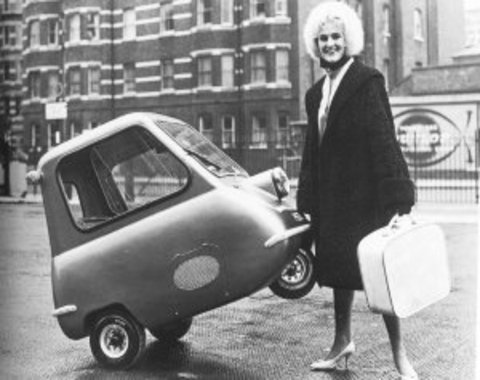Figuring out the final 5% of the autonomous-vehicle question will likely be more challenging than getting to that point, but there’s now a critical mass of technologists working on the remaining issues. From Hal Hodson at New Scientist:
SOME day soon, driverless podcars will cluster around our cities, waiting to pick us up on demand. There will be no steering wheel, no brake pedal; once seated, you can take a nap or watch a movie. This public facility will reduce traffic and carbon emissions. Not having to own a car will make transport cheaper for everyone.
Stop us if you’ve heard this one before.
Why are self-driving cars taking so long to show? For starters, essential technological and social changes needed to make them work might still be decades away. But they are on their way, thanks to some of the world’s largest companies. Google has been fine-tuning its autonomous cars for years, amassing hundreds of thousands of kilometres of test drives on Nevada’s roads. Last week the developers of the taxi app Uber announced a collaboration with Carnegie Mellon University’s Robotics Institute to develop technology for a self-driving taxi fleet.
“It’s a very big deal,” says Nidhi Kalra, an analyst at the RAND Corporation. “Nearly every auto-maker is pursuing this technology.”
Autonomous cars will confront the same problem that faces all robots designed to operate around people: social interactions are a key part of negotiating our world.•
Tags: Hal Hodson, Nidhi Kalra

